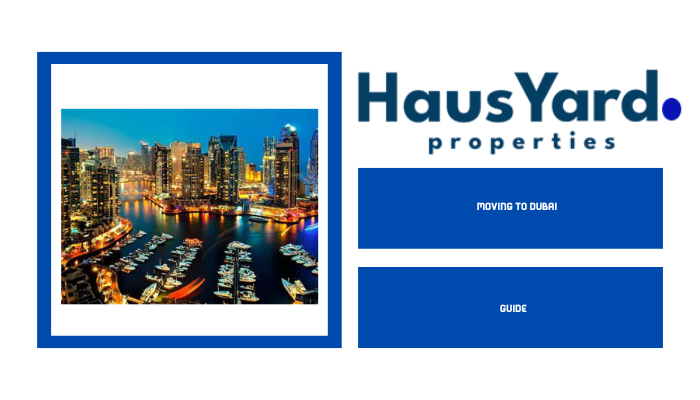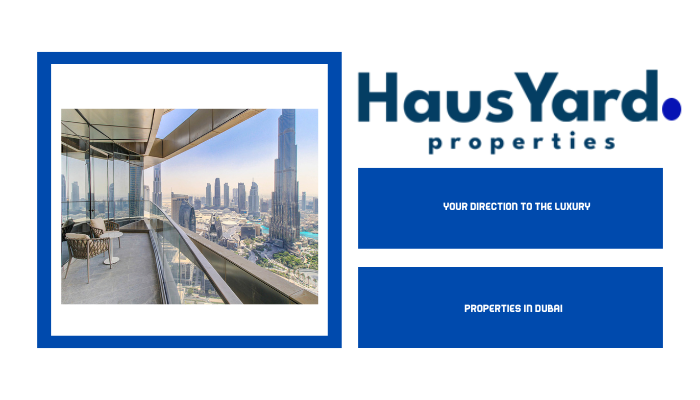Are you ready to embrace the vibrant lifestyle and unique atmosphere that Dubai offers? Moving to Dubai this iconic city can be an incredibly enticing prospect for many expats seeking a change in scenery.
Dubai presents an array of opportunities, making it an ideal destination regardless of your aspirations—be it a promising career, attractive salaries, a high-quality lifestyle, or even for investment purposes. Now that you’ve made the decision, the next exciting step is delving into everything this city has to offer.
From its rich cultural tapestry to its dynamic business landscape and luxurious living standards, Dubai awaits with open arms, ready to offer a lifestyle that’s both rewarding and full of possibilities.
Moving to Dubai
Upon arrival in Dubai, a health certificate is a prerequisite for entry, mandatory for all visitors to present upon arrival.
To seamlessly integrate into life in Dubai, obtaining a local mobile number is crucial. Within the airport, various outlets from leading mobile phone companies like Du, Etisalat, and Virgin Mobile are readily available. These outlets provide a range of plans tailored to individual needs, including options specifically designed for short-term visitors and tourists. Feel free to express your requirements, enabling them to assist in selecting the most suitable plan for you.
Acquiring a new SIM card is a straightforward process at any of these service booths. You’ll need to provide:
- Your entry visa to Dubai
- A copy of your valid passport
Once you have your new SIM card, you’ll enjoy the convenience of:
- Sending SMS messages
- Making calls
- Browsing the internet
- Downloading any necessary applications
Not only available at Dubai’s International Airport, these SIM card outlets can be found throughout the city, including malls, attractions, and different communities, ensuring accessibility and ease for all residents and visitors.
In Dubai, the entry permit is a crucial document that allows expatriates to enter the UAE for the purpose of finalizing their residency visa procedures. The validity of the entry permit depends on the specific visa type:
- For typical visa types or Green residence visas (with durations ranging from 1 to 5 years), the entry permit is valid for 2 months.
- Golden Visa holders enjoy a more extended validity, with multiple entries allowed for up to 6 months.
However, if you’re visiting Dubai for purposes such as tourism, medical treatment, investment, job hunting, visiting a relative, or transiting through the city, your entry permit is known as a:
- Visit visa
- Tourist visa
- Transit visa
The responsibility for issuing the entry permit falls on your sponsor, who may be your employer, relative, or a public or private sector entity.
After your arrival and passing through the airport gates, the immediate next step is to obtain your residency visa. This document is crucial for full access to the city’s services and to ensure a smooth stay. Fortunately, the process of obtaining a residency visa in Dubai is straightforward, ensuring that you won’t encounter any confusion.
Once your residency visa is secured, the subsequent essential requirement is obtaining an Emirates ID. This identification card is your key to enjoying all the services and amenities that Dubai has to offer, ensuring a seamless and hassle-free experience in the city.
Read More: Your Focus to Al Mizhar Mall in Dubai
Find Your New Home
Securing your new residence is a pivotal step once your paperwork is in order, marking a crucial phase of settling into life in Dubai. Renting is notably high in demand among expats due to its flexibility and convenience.
While rental properties are the popular choice, Dubai also offers a plethora of properties available for purchase, catering to those seeking a permanent residence or interested in real estate investment.
Our website provides an extensive array of units available for both rent and sale across various communities in Dubai. However, we recommend the leasing option for its flexibility. This choice allows for greater freedom in selecting your home’s location, unit type, and the duration of your stay, which is especially advantageous if you’re new to the city.
Furthermore, opting for a lease enables easy relocation should your workplace change, or if your family expands, allowing for a seamless move to a larger unit. This flexibility grants you the agility to adapt your living situation according to your evolving needs and circumstances.
Read More: Your Guide to Oasis Mall Dubai
Tips When Renting a Home in Dubai
Embarking on renting a home in a new city can be a mix of excitement and apprehension. To ensure a smooth and rewarding renting experience in Dubai, it’s essential to plan well and consider these tips for a seamless move:
- Set a Budget: Establish a maximum budget for rent to guide your search and finalize a deal within your financial parameters.
- Understand Leasing Rights: Know your leasing rights, responsibilities, and notice periods for a better understanding of the leasing process.
- Additional Fees and Taxes: Be aware of any extra fees or taxes associated with renting to avoid surprises.
- Furnished Unit Checklist: If you’re seeking a furnished property, create a list of essential items required in your potential home.
- Maintenance Fees and Pet Policies: Confirm the due maintenance fees for the building and inquire about pet-friendliness if you have a pet.
- Research the Community: Explore and learn more about the community’s amenities, facilities, and services.
- Seek Real Estate Expert Advice: Consult with real estate experts to swiftly identify the best options that meet your needs.
- Gather Recommendations: Seek advice from friends or relatives who have experienced a similar process to gather valuable recommendations and tips.
- Online Research: Utilize the internet to understand the pros and cons of the community you’re interested in.
- Negotiation: If competing for a unit, consider seeking help from real estate experts to facilitate the process and negotiate effectively.
Types of Rentals:
- Long-Term Rental: Offers a leasing contract for at least 1 year, providing a more permanent housing option.
- Short-Term Rental: Allows for weekly or monthly leases without a long-term commitment. It’s a flexible and less binding option initially, particularly useful as you settle into the city and explore different communities.
Opting for a short-term rental upon arrival allows for greater flexibility as you acclimate to the city and decide on the community that best suits your lifestyle. It’s a cost-effective alternative to staying in a hotel and provides the freedom to assess different living areas before committing to a more permanent arrangement.
Read More: Dubai Mall Restaurants fountain view
Top Residential Areas for Rent in Dubai
Selecting the right community is a crucial step in finding your ideal home, one that aligns with your budget, requirements, and preferences.
For individuals living independently or newlyweds, small apartments or studios present a favorable choice. Below are areas featuring prominent towers and buildings that offer diverse facilities in a bustling environment:
- Dubai Marina
- Downtown Dubai
- Business Bay
- Jumeirah Lake Towers (JLT)
- City Walk
For families seeking a serene and family-friendly environment, these communities offer a peaceful and pleasant lifestyle. These areas boast varied sizes and prices of units, ensuring a fitting option to meet your specific needs:
- Palm Jumeirah
- Mirdif
- Jumeirah Beach Residences (JBR)
- Mudon
- Arabian Ranches
Each of these communities provides a unique living experience with a variety of amenities, catering to different lifestyles and preferences, making it easier for you to find a home that suits your individual requirements and provides the desired quality of life.
Read More:Dubai Mall Shops: Where Fashion Meets Luxury
Top Residential Areas for Sale in Dubai
Purchasing a house in Dubai involves considering various factors such as the property’s value, its potential for investment, location, and available services.
One key aspect to note is that the UAE permits expats and visitors to have full ownership of units in specific communities categorized as Freehold areas. These areas are updated annually by the Dubai Land Department (DLD). Here are some of the prominent freehold communities in Dubai:
- Palm Jumeirah
- Burj Khalifa
- Dubai Investment Park
- Jumeirah Beach Residence (JBR)
- Dubai Sports City
- Motor City
- Jebel Ali
- The Greens
If you’re contemplating owning a property in this emirate, our portal offers a diverse range of properties for sale in Dubai. Whether you’re looking for a property for investment or personal residence, these communities offer a variety of options to cater to different preferences and investment objectives.
Read More:A Taste of Tradition: souk al bahar restaurants Experience
Start Working in Dubai
As a new expatriate in Dubai, understanding the working procedures in this emirate is pivotal for a smooth transition into the workforce. Here are the essential details to assist you in seeking new opportunities in Dubai, ensuring a clear and comprehensive understanding of this significant step:
- Work Permit: A work permit is a prerequisite to commence working in Dubai, and it’s the employer’s responsibility to initiate this process. The employer may require certain documents from you to proceed with the application. These documents typically include:
- Colored picture with a white backdrop
- Completed Employment Offer form, signed by both the employer and employee
- Academic documentation based on the profession’s skill level
- Professional license issued by the relevant UAE authority
- Specific documentation for nationals from certain countries
- Residence Visa for Employment: The residency visa for employment is an essential part of residing in the UAE for work. It is issued by the employer or sponsor, providing permanent residency in the country.
- The validity of the residency visa ranges from 1 to 3 years, depending on the terms of the employment contract and job role.
- You can verify the status of your visa through the General Directorate of Residency and Foreigners Affairs (GDRFA) website using your valid passport.
- Upon receiving your residency visa for work, you can obtain an Emirates ID, an identification card crucial for accessing various services and amenities in the city.
These procedures are standardized for commencing work in Dubai, irrespective of your origin, whether you’re moving from the UK, India, or any other location. Familiarizing yourself with these steps will help ensure a smoother transition into the workforce in the UAE.
Understanding the working regulations in Dubai is crucial for a balanced work-life perspective. Here’s an insight into the recent changes and general practices followed in the UAE:
Working Hours: The UAE government recently revised the official working hours to align more with international standards, aiming to enhance the working environment for employees and residents. As a result, the standard division for working days and weekends is as follows:
- Working days: Monday to Friday
- Weekend: Saturday and Sunday
This structure is in addition to the official holidays and events designated by the country for employers and employees.
Salaries in Dubai: According to official resources, the average monthly salary in Dubai typically falls within the range of AED 19,000 to AED 21,500. However, this figure can vary based on factors such as industry, job position, or the size of the employing entity. Trusted sources suggest that the minimum wage across various sectors in Dubai can range from AED 5,000 for employees.
Understanding these regulations and average salary indicators provides a foundation for individuals navigating the job market in Dubai, offering insights into the typical working hours and the financial landscape of employment in the city.
Read More: Beyond Borders: International Business in Business Bay Dubai
Enjoy Living in Dubai
Understanding the cultural norms and environment of a new city is crucial when relocating, whether with family or alone. Here are key points about Dubai to aid in better comprehension and to prevent any inconveniences:
- Safety: Dubai is recognized as one of the safest cities globally, boasting low crime rates.
- Climate: The weather is predominantly hot and humid, except during the winter months (from December to March) when it’s more pleasant with a refreshing breeze.
- Respect and Legalities: Racism or verbal offenses are not tolerated. Defamation can lead to imprisonment or even a ban from entering the country. Drinking alcohol is restricted to licensed venues; public consumption on the streets is not allowed.
- Social Etiquette: It’s advisable for men not to initiate handshakes with women unless the gesture is initiated by the woman first.
- Pensions and Cultural Differences: Many private companies in Dubai typically do not provide pensions. Families relocating from the UK or other Eastern countries should be mindful of cultural differences. As an Arab country, Dubai might have variations compared to Eastern cultures.
Read More: Al Mulla Plaza: Your One-Stop Shopping Destination
Costs of Living in Dubai
Understanding the cost of living in the UAE, especially in Dubai, is essential for individuals, particularly for those with limited wages. Having an overview of basic expenses and services in the city allows for better financial planning upon arrival.
Here is a breakdown of average expenses in Dubai:
- Housing: Typically ranges from 15% to 30% of your monthly salary.
- Food and Transportation: Each account for about 15% of the monthly budget.
- Bus monthly subscription: AED 340
- Taxi ride: AED 12
- Fuel: AED 3.84 per liter
- Water and Electricity (DEWA): Around AED 700 per month
- Home Internet: Approximately AED 360 per month
Read More: Waldorf astoria dubai palm jumeirah restaurants
Commute Around the City
Getting around in Dubai is a breeze, given the diverse and convenient transportation options available across the city’s various locations.
Here are the different modes of transportation in Dubai:
- Metro
- Tram
- Buses
- Private Cabs
- Taxis/Uber
It’s noteworthy that public taxis are often more cost-effective than app-based services, making them a budget-friendly choice for many commuters.
Payments for transportation in Dubai are streamlined through the Nol Smart Card, an electronic payment card that simplifies transactions across these transport modes, eliminating the need for cash or bank cards. Using the Nol Card can sometimes earn you discounts on fares, enhancing the affordability of commuting.
For those considering driving in Dubai, acquiring a driving license is a primary requirement. Additionally, if you plan on owning a car, obtaining car insurance is mandatory. The Roads and Transportation Association (RTA) website facilitates the application process for car insurance, with different packages available. The Third Party Liability Insurance is the most common type, offering the essential coverage required for legal compliance when driving in Dubai.
Read More: Things to do in palm Jumeirah 2023
Explore the Services in Dubai
Delving into the emirate’s top services, let’s explore key aspects of healthcare and education in Dubai:
- Healthcare Services: Dubai offers comprehensive healthcare coverage to expats, providing specific healthcare cards obtainable through employers. These cards grant expats a 50% discount on basic service fees, with an approximate cost of AED 500 for all age groups.
- Education in Dubai:
Nurseries: Average annual tuition fees start at AED 2,500.
Schools:
- Governmental: AED 6,000
- Private/International: Ranges from AED 14,000 to AED 22,000
Universities: Annual fees range from AED 37,500 to AED 70,000.
Selecting the Right School: Choosing the ideal school for your children’s education is paramount when relocating to Dubai. The city hosts diverse schools with various curricula to suit different backgrounds, whether moving from London, Canada, the USA, an Arab country, or any other homeland.
Consider the following steps when choosing a school:
- Type of Education: Determine the educational system that aligns with your preferences (British, American, Indian, Canadian, etc.).
- Tuition Fees: Select a school that fits within your budget.
- Location: Consider proximity to your home for ease of commuting, saving time and effort.
With a wide array of educational options and a range of curricula, expats relocating to Dubai have the opportunity to select a suitable school that aligns with their children’s educational needs and family circumstances.
Read More: CityWalk restaurants Guide 2023
Have Fun in Dubai
Discovering fun and entertainment in Dubai is an adventure in itself, with a wealth of iconic attractions, themed parks, and remarkable landmarks to explore:
Exhilarating Destinations:
- Burj Khalifa
- Museum of the Future
- IMG World of Adventures
- Green Planet
- Dubai Parks and Resorts
For avid shoppers, Dubai’s malls offer a paradise of top brands, catering to every shopaholic’s delight. Some of the best malls to explore include:
- Dubai Mall
- Mall of the Emirates
- Dubai Festival City
- Dubai Marina Mall
Nature enthusiasts will find solace in Dubai’s green spaces, with various beautiful parks ideal for leisurely walks, picnics, or even yoga sessions. These parks offer serene escapes within the bustling city environment, allowing visitors to connect with nature and relax.
Is Moving to Dubai Worth it?
Yes, absolutely. Dubai offers excellent living standards, abundant career prospects, and a secure environment.
Read More: Dubai Hills Mall restaurants
Can You Just Move to Dubai?
You’ll need a residency visa plan to move to Dubai, with various options available to suit your circumstances.
Read More: Al Khawaneej Walk: A Unique Dubai Experience 2023
What Should You Know Before Moving to Dubai?
Essential considerations include the type of residency visa, necessary documentation, cost of living, suitable community, and understanding the country’s laws.
How Much fundss Do You want to Move to Dubai?
Expenses vary based on lifestyle, but a monthly budget in Dubai may range from AED 3,500 to AED 5,000, excluding rent.
Can I Move to Dubai Without a Job?
Yes, the UAE now offers new types of visas that enable moving to Dubai without a job.
What Is a best Salary to Live in Dubai?
A comfortable monthly salary ranges between AED 15,000 to AED 20,000, but it depends on individual needs and circumstances.
Is Moving to Dubai a Good Career Move?
Absolutely, as Dubai boasts top international companies, a promising working environment, and vast opportunities.
Which Is the Best Area in Dubai to Live in as an Expat?
Areas like Dubai Marina, Deira, Mirdif, and Al Barsha are favored, but it’s vital to consider pricing, amenities, accessibility, and more.
How Much Is the lease in Dubai per Month?
Rental prices start at around AED 4,500 per month but may vary based on factors like location, unit size, amenities, and negotiation possibilities.
Which Part of Dubai Is the Cheapest?
Affordable districts in Dubai include Deira, Dubai Production City, International City, Jumeirah Village Circle (JVC), and Dubai South.
What Are the Disadvantages of Living in Dubai?
Challenges may include traffic congestion, intense job competition, hot weather, and high prices for minimum wage earners.
What Are the Pros of Moving to Dubai?
Pros include its diverse culture, safety, well-organized services, vast job opportunities, educational diversity, and a thriving economy.
Should I Move to Dubai as a Woman?
Dubai is considered one of the safest cities globally with low crime rates, making it an excellent choice for women.
Is the Quality of Life in Dubai Better?
Dubai is renowned for its high living standards and top-notch services, ensuring a comfortable and convenient lifestyle.
This guide covers everything from arriving in Dubai to settling into your new home. Whether it’s for work or residing, moving to Dubai is a significant yet rewarding step.




